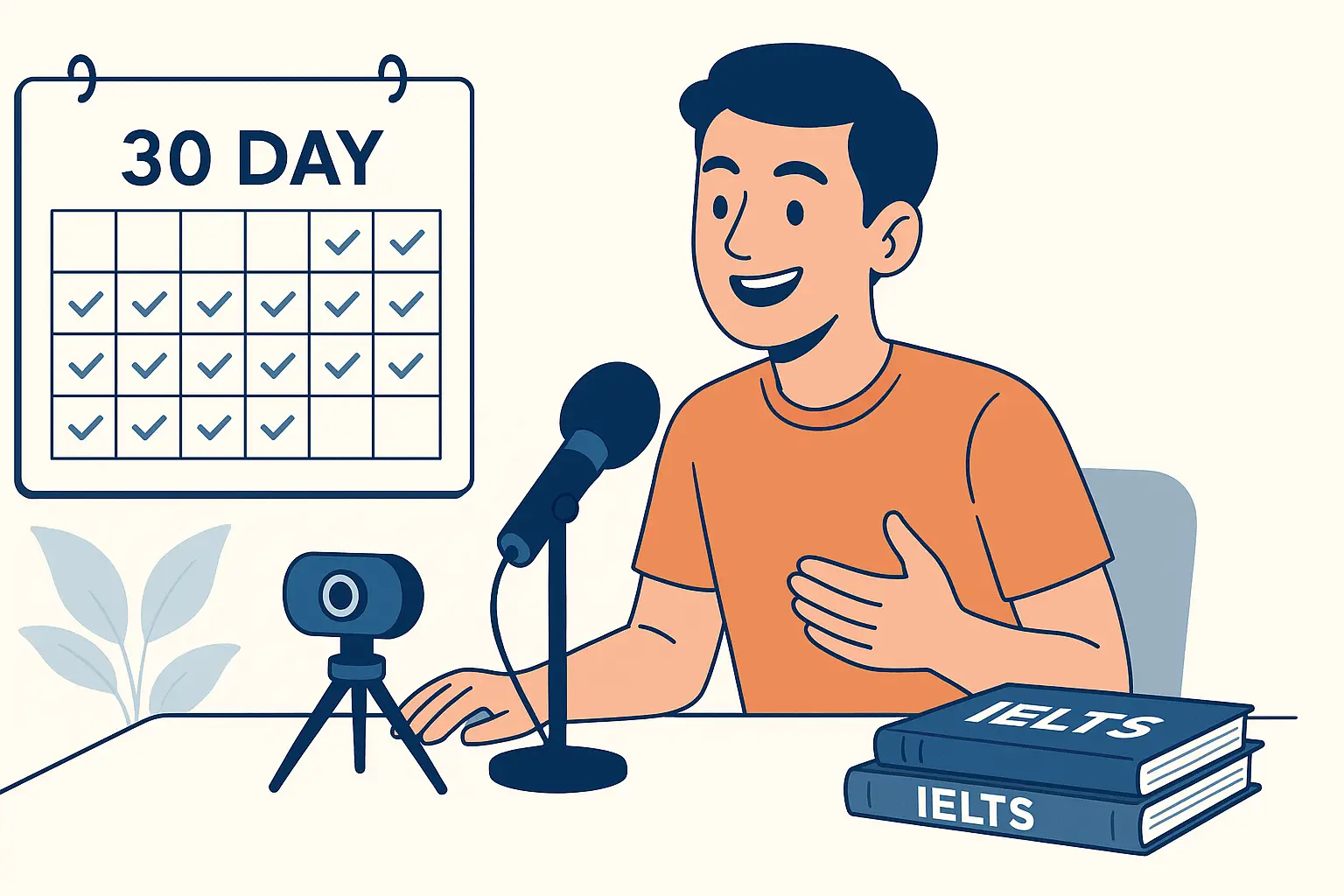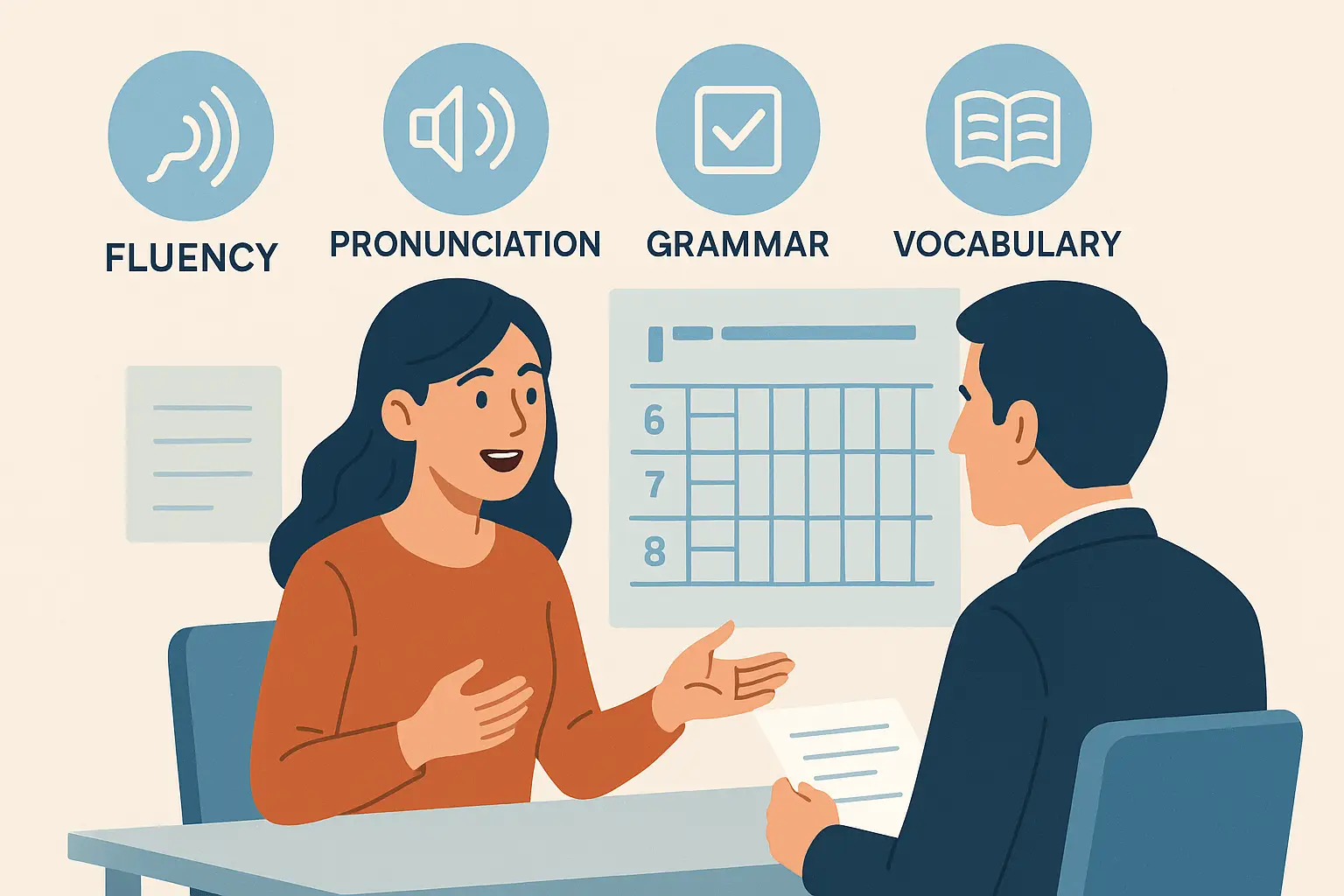When students come to me struggling with IELTS Speaking Part 3, I immediately know what’s wrong — they either freeze up, ramble without structure, or give short, underdeveloped answers. This part of the test is not about chatting casually. It’s a formal, structured discussion that demands critical thinking, justification, and linguistic variety. If you want to get a Band 7+, let’s fix this together — starting now.
What Makes IELTS Speaking Part 3 So Challenging?
IELTS Speaking Part 3, also called the two-way discussion, follows your Part 2 monologue. The examiner asks deeper, abstract, or opinion-based questions related to the topic from Part 2. You’re expected to develop your answers with explanations, examples, and sometimes comparisons.
Over the years, I’ve seen learners worldwide — from Vietnam to Venezuela — panic at this stage. They worry their opinions aren’t strong enough or fear they’ll say something “wrong.” But here’s what I always tell them: You’re not graded on your opinion — you’re graded on how you express it.
Common Student Problems (And How We Fix Them)
1. “I don’t know what to say.”
That’s okay — you don’t need a perfect answer. One of my Korean students used to panic whenever she heard “Why do you think…?” So, I taught her a simple strategy: State. Explain. Example. She started with a basic opinion, explained why she believed it, and then added a relatable example — sometimes from her own life. That framework gave her confidence and structure.
2. “My answers are too short.”
If your answer is under 3 sentences, that’s a red flag. In Part 3, the examiner expects more development. Practice expanding by comparing, giving reasons, or adding a hypothetical situation.
🔹 Example Question: Do you think governments should invest more in public transport?
✅ High-Band Response: Yes, I do. Investing in public transport can reduce traffic congestion and pollution. For instance, in my city, the metro system has encouraged thousands to leave their cars at home.
See the difference? Clear opinion, reason, and example — that’s the IELTS Speaking Part 3 magic formula.
Band 9 Strategies I Teach My Students
💡 Use a Clear Structure
Use a consistent structure like Opinion → Reason → Example → Mini Conclusion. This keeps your answer organised and easy to follow.
🧠 Think Like an Examiner
They’re listening for fluency, coherence, lexical resource, and grammatical range. That means avoid repeating words like “I think…” or “because…” — instead, use varied language.
Try saying:
- From my perspective…
- The primary reason is that…
- Let me give you an example…
- On the other hand…
🔄 Compare and Contrast
Whenever possible, compare different sides of the argument. One of my Spanish learners significantly improved her score by adding, “However, others may argue that…” to her responses.
Building Confidence Through Practice
I always remind my students: fluency comes with familiarity. The more you practise these types of questions, the more automatic your answers become. Use official materials from IELTS.org, British Council IELTS, or IELTS IDP to simulate test-like conditions.
Also, if you haven’t yet explored it, check out our complete guide to IELTS Speaking and breakdown of IELTS Speaking parts and strategies for a full overview of the format, scoring, and tips.
How I Help Students Score Band 8+
Let me give you a real success story. One of my online students from Brazil was stuck at Band 6.5 for Speaking because she gave “safe” and overly brief answers. We worked through timed mock sessions, and I pushed her to:
- Use advanced connectors like “In contrast” and “That being said”.
- Add personal examples or global references.
- Embrace opinion strength (e.g., “I firmly believe…” instead of “Maybe, I guess…”).
Within 3 weeks, she hit Band 8 — all by mastering IELTS Speaking Part 3.
FAQs: IELTS Speaking Part 3
Q1: How long does Part 3 last?
A: Around 4–5 minutes, depending on how much you say and how many follow-ups the examiner gives.
Q2: Can I ask the examiner to repeat a question?
A: Yes, absolutely. Just say, “Could you please repeat the question?” It doesn’t affect your score.
Q3: Is it okay to pause and think before answering?
A: Yes. Brief pauses are natural. You can also use fillers like “That’s an interesting question…” to buy time.
Q4: Do I need to speak British or American English?
A: No. All accents are accepted as long as your pronunciation is clear and understandable.
Q5: What if I don’t have a strong opinion?
A: That’s fine! Choose one side and explain it confidently — it’s the language, not the opinion, that’s being assessed.
Final Word: IELTS Speaking Part 3 isn’t about being right — it’s about being clear, organised, and fluent. With the right strategies and practice, you can confidently handle any opinion-based question that comes your way. Keep speaking. Keep improving. And remember — I’m here to help you speak your way to Band 9.





